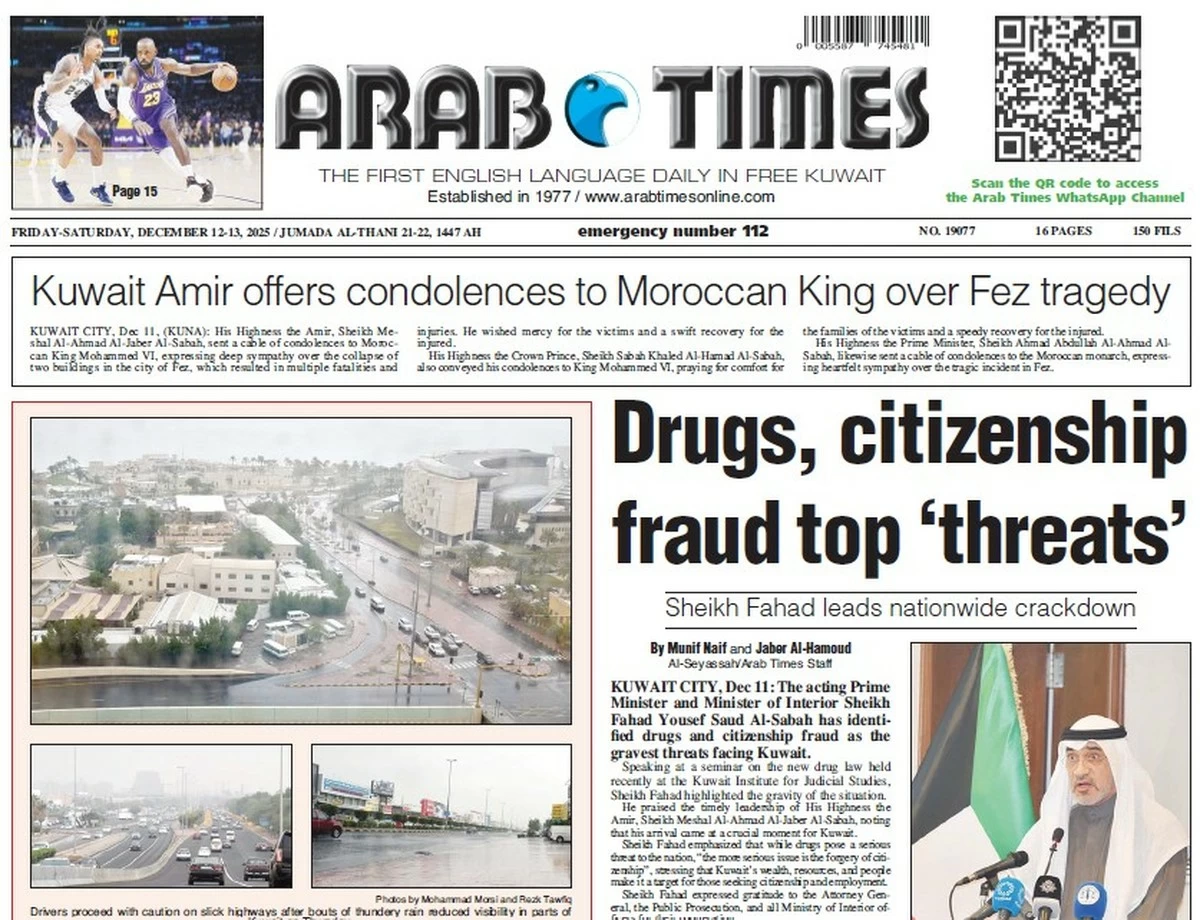10/06/2025
10/06/2025
THROUGHOUT the history of the Hajj pilgrimage, many events have occurred, including repeated attempts to seize control of Makkah. However, God protected it, even during the most perilous times. One such event was the Qarmatian rebellion led by Abu Tahir al- Qarmati, the ruler of Bahrain, who was also a highwayman. In 908 AD, Abu Tahir and his forces attacked the Grand Mosque (Masjid al-Haram) on the Day of Tarwiyah, massacring approximately 30,000 pilgrims, enslaving women, and looting everything in sight, including the Black Stone. The Black Stone was taken to Bahrain and remained in Qarmatian possession for 22 years.
Eventually, the Qarmatians were defeated, the Black Stone was returned to Makkah, and the counterfeit structure they had built to replace the Ka’aba was demolished. Their downfall was seen as a divine punishment for their heinous crimes. The Qarmatians also committed massacres along pilgrimage routes, blocking people’s access to the Holy Land. Out of fear, pilgrims from Syria and Iraq were forced to suspend their Hajj pilgrimage. For decades, the roads to Makkah remained unsafe, plagued by gangs and looters. This dire situation continued until King Abdulaziz Al-Saud unified the Kingdom of Saudi Arabia and established lasting security along the roads leading to Makkah. Since that time, security began to be restored, and the state has devoted all its resources to meeting the needs of pilgrims and visitors to the Sacred House, thus fulfilling what Allah Almighty stated in the Holy Quran, “And [mention] when Abraham said, ‘My Lord, make this a secure city and provide its people with fruits – whoever of them believes in God and the Last Day’.”
Each year during the Hajj season, the leadership of the Kingdom of Saudi Arabia, under the Custodian of the Two Holy Mosques, King Salman bin Abdulaziz, and his energetic Crown Prince, Prince Mohammed bin Salman, continues to impress the world with new achievements. These include continuous expansion projects and enhancements in services to ensure the comfort and safety of pilgrims arriving in Makkah from all over the globe. This commitment was evident during the most recent Hajj season, which was marked by the absence of epidemics or fatalities due to accidents. This success was attributed to the full readiness of medical teams and the introduction of advanced technologies, such as Artificial Intelligence (AI) and drones, used for the first time to monitor pilgrims around the clock.
There is no doubt that the movement of two million people within a limited space may lead to challenges and casualties. However, thanks to early organization and meticulous planning, this year’s Hajj season passed without any notable incidents. Pilgrims were able to perform all rituals, including circumambulating the Ka’aba, standing on Mount Arafat, and spending the night in Mina and Muzdalifah, with ease and smoothness. The development of the Two Holy Mosques has been a major concern for every king of the Kingdom of Saudi Arabia since its founding. It is well known that the people of Makkah, and indeed most Saudis, eagerly await the Hajj season as an opportunity to serve the visitors of the Sacred House, offering support through food, shelter, and other forms of assistance. For the exceptional success of this year’s Hajj, which was free from major incidents, the government of King Salman bin Abdulaziz and his Crown Prince, Prince Mohammed bin Salman, deserves heartfelt gratitude. Their leadership delivered an unprecedented level of excellence in ensuring the safety, comfort, and well-being of pilgrims.



